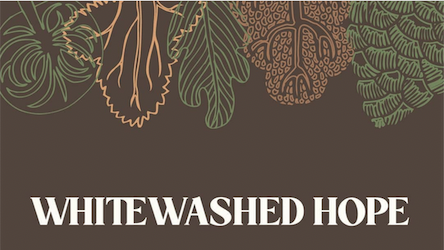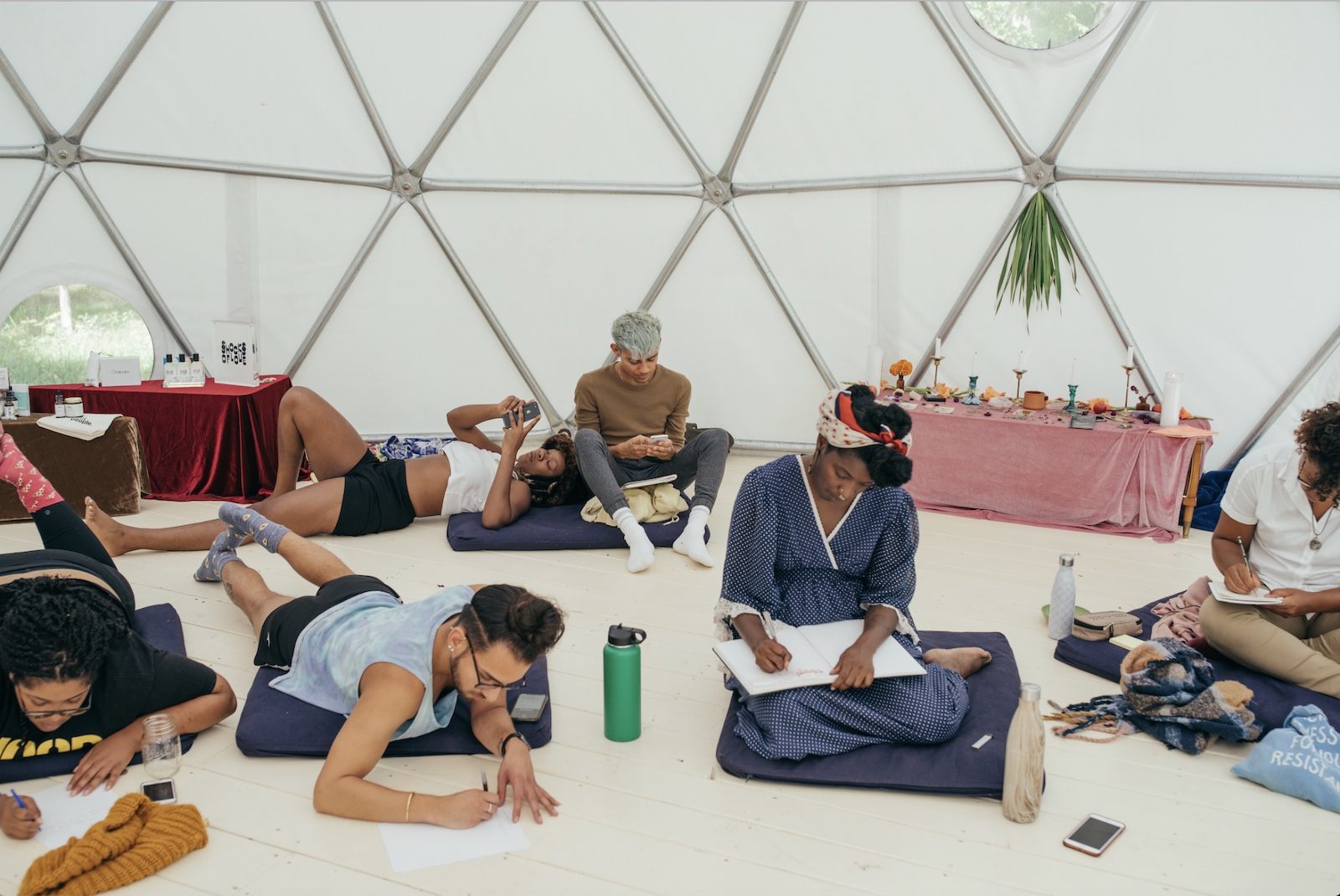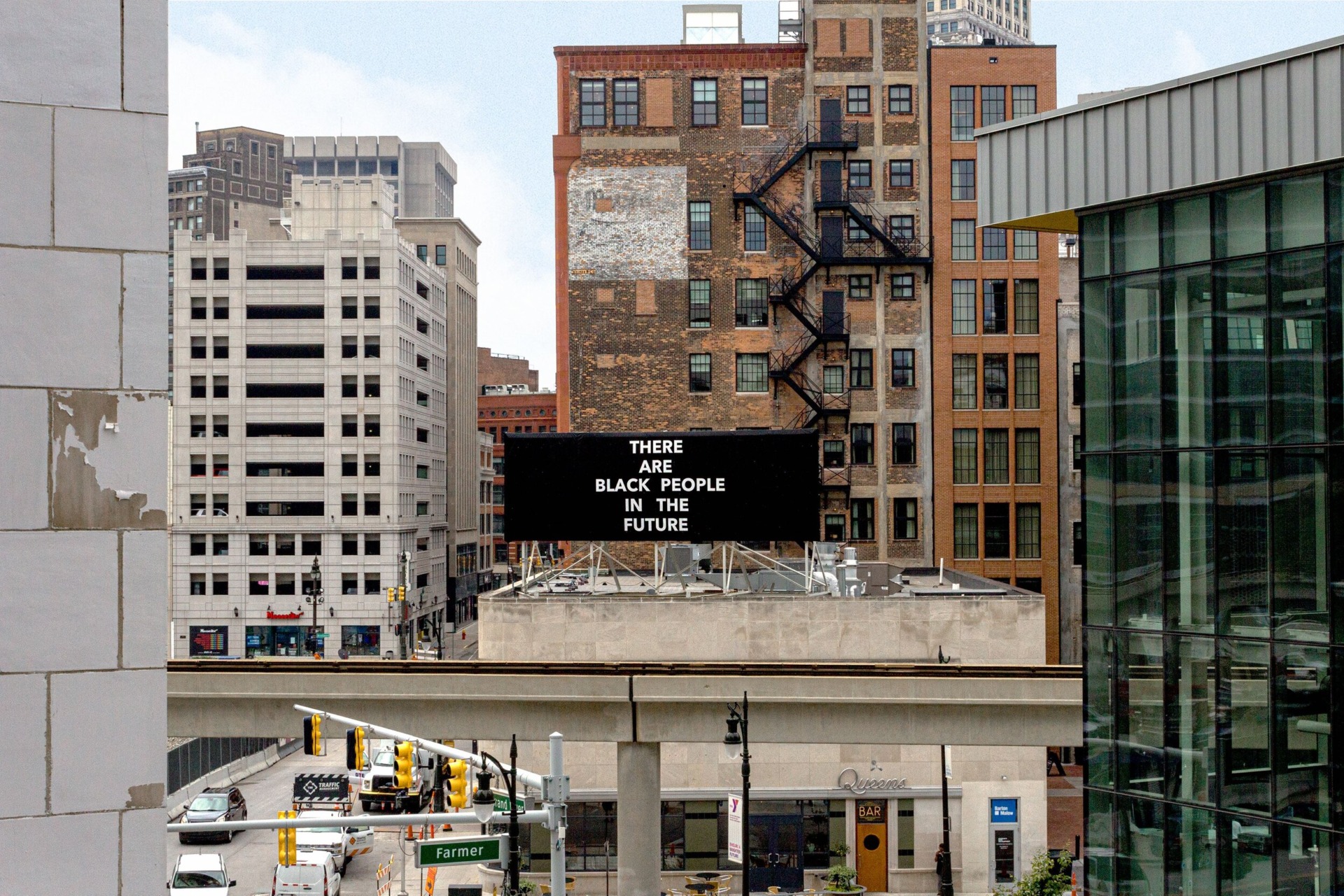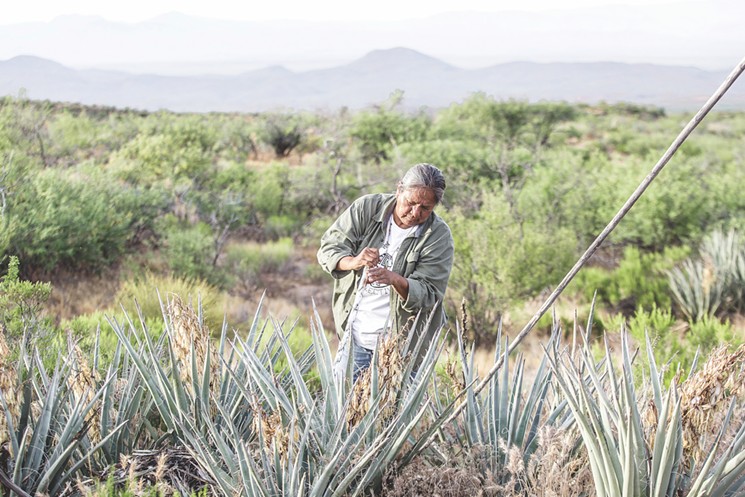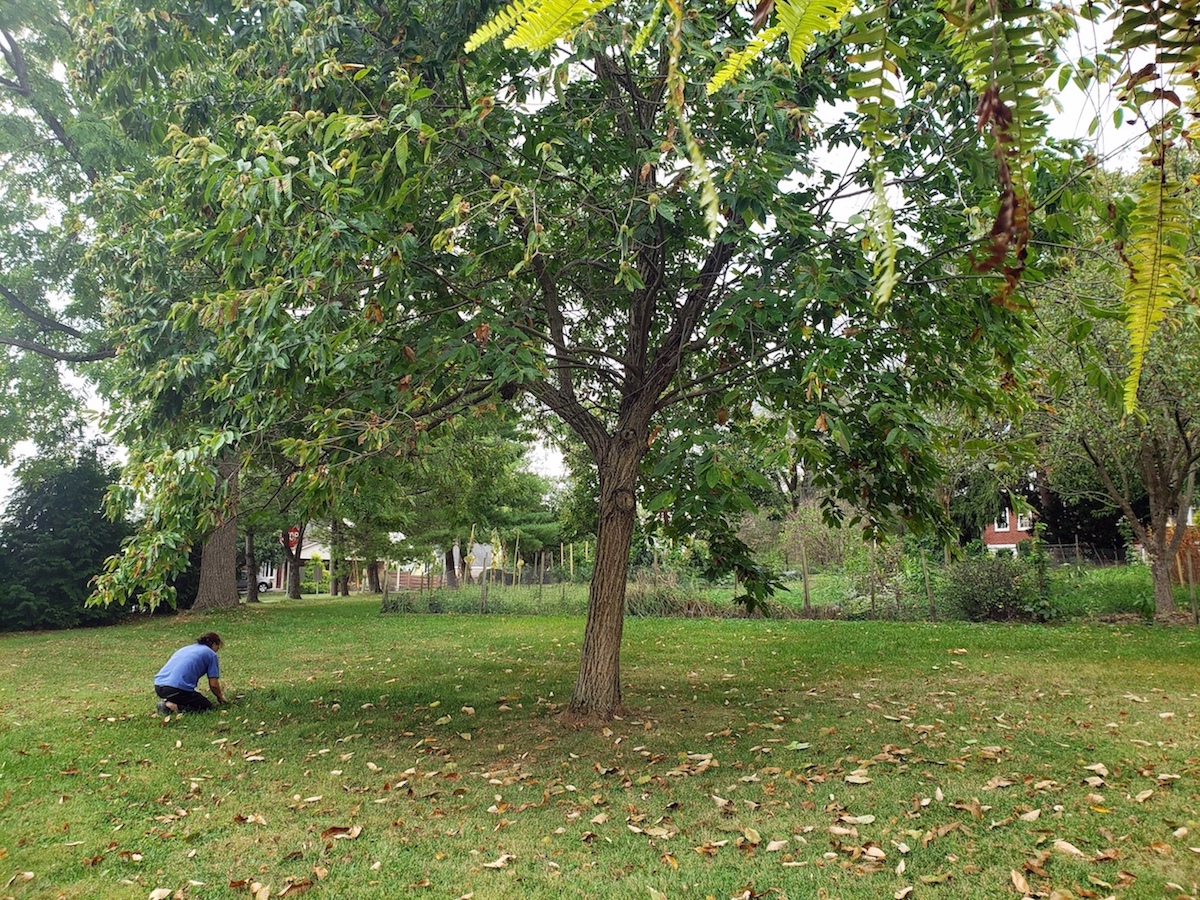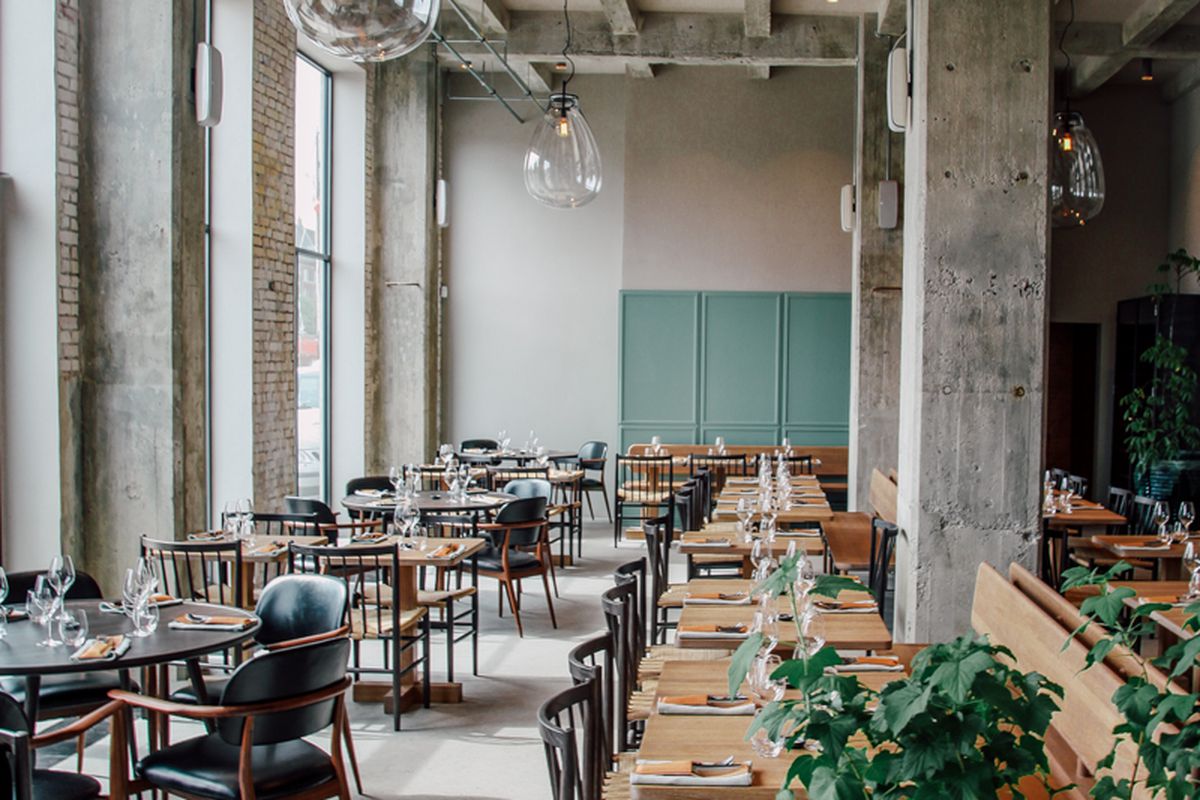Next week marks the 10th annual Climate Week NYC summit, an annual showcase of global climate actions that takes place during the UN General Assembly. With over 140 affiliate events hosted in 2017, this year’s summit include a webinar with IKEA’s Chief Sustainability Officer, a tour of the New York Botanical Garden’s Edible Academy site and the International Forum on Food and Nutrition. Amongst the mix of policy wonks, social entrepreneurs and scientists demanding climate action is a growing and critical movement of people who see climate change as a moral issue.
A central voice in this movement is the Center for Earth Ethics. Founded at Union Theological Seminary with the mission to engage spiritual and religious leaders, the Center works to establish shift our value system from one of economic development to one where “value is measured according to the sustained well-being of all people and our planet,” as outlined in the organization’s founding vision. In the wake of the 2014 Religions for the Earth conference which gathered 200 leaders from around the world to reframe climate change as a moral issue, the Center was established to continue the dialogue and to equip future leaders with the tools and scaffolding for climate action.
In anticipation of Monday’s Woven Skins talk celebrating the installation of a nomadic installation by Studio Claudy Jongstra for Climate Change week at A/D/O, we spoke to the director of the Center for Earth Ethics Karenna Gore about climate change as a moral and spiritual problem, the importance of recognizing and learning from the biocultural heritage of Indigenous people, and what small steps every person should do today in the fight against climate change.
 Karenna Gore, director of the Center for Earth Ethics, speaking at a rally against a proposed gas pipeline that would run through New York state. Photo by Erik McGregor.
Karenna Gore, director of the Center for Earth Ethics, speaking at a rally against a proposed gas pipeline that would run through New York state. Photo by Erik McGregor.
MOLD Magazine: What are our current conversations around climate change missing when we don’t talk about it within a moral framework?
Karenna Gore: When we talk about climate change in terms of science and even economics, it can be an abstract systemic discussion in which there are systems analysis and technical choices. It is a debate or a discussion on a level that doesn’t actually connect with people in terms of the meaning of their lives. What we’re really talking about with climate change is: What are our moral obligations to each other across time and space? What place do human beings occupy on this planet? How do we care about future generations and the whole interconnected web of life?
Increasingly we’re seeing people suffering and getting hurt right now. This is a system that is causing people to suffer sickness and death on the ground with extractionist industries that have toxic emissions like coal ash and methane plumes and fracking waste ponds. It’s also happening with climate impacts where the people who are affected most by the stronger storms, droughts, heatwaves, wildfires and the like are in the most vulnerable and marginalized communities because they don’t have the resources to flee, have second homes, rebuild, or to relocate quickly.
When we frame [climate change] as a moral and spiritual problem, it’s about caring for the most vulnerable, and it’s also about our own integrity. Are we able to look at the real costs? Just because costs aren’t measured does not mean they don’t exist.
It’s important to be able to have that conversation and not just say, “Well, this is a balance between burdens on business and the role of government.” That kind of language doesn’t really cut to the reality of the situation. You can look at other movements—obviously the Civil Rights Movement is a huge example—whereby there was a time where that discussion was being had about federalism and the role of state power versus federal power. When it comes down to a question of right and wrong, it is a very different way for people to think about it.
Another important concept is the concept of slow violence, that the pace of the violence can throw people off from connecting cause and effect. Sometimes there is some amount of time that passes in which there’s a massive corporate misinformation campaign. We know that the stronger storms are connected to the warming of the atmosphere by the emissions of the fossil fuel industry. They spend money in order to confuse people and say that it’s not happening that way. We talk about cause and effect and slow violence, and it’s a moral issue.
In an interview at the Berkeley Center, you spoke about the biocultural heritage of Indigenous people as a valuable framework to learn from with the goal of creating a new value system. Can you talk a little bit about the work that you do through the Original Caretakers program?
The Original Caretakers program director, Mindahi Bastida, and Geraldine Patrick Encina, a scholar-in-residence here who specializes in biocultural heritage and particularly timekeeping, ancient calendars like Aztec, Olmec, and Mayan calendars, can speak more to this. The work of the Original Caretakers Program at Center for Earth Ethics grew out of the strong voice from First Nations in guiding us to see the root causes of climate change: the economic development paradigm, the fallacy of separation between humanity and nature. There are wisdom traditions within many Indigenous cultures around the world that have teachings about caring for future generations.
 Yánesha educators in central Peru gather to devise a curriculum for teaching the Yánesha language. Photo courtesy of the Center for Earth Ethics.
Yánesha educators in central Peru gather to devise a curriculum for teaching the Yánesha language. Photo courtesy of the Center for Earth Ethics.
The Seven Generations principle teaches that every decision should be made with seven generations in mind—it comes from more than one tradition but certainly from the Haudenosaunee (Iroquois). That is a very critical teaching for how we need to be addressing the problems with our current economic system. We might think, “Oh, well that’s a spiritual tradition, and our tradition is neutral,” but the way that our mainstream society talks about economy, the fact that we don’t think about seven generations from now, is itself a kind of belief system, a claim about what is morally relevant for us to consider.
Mindahi works a lot on sacred sites as part of biocultural heritage. It comes up in so many places in the economic development paradigm. If there’s a swath of land that has no manmade structure on it, the attitude is that there’s nothing there. This happens time and time again. For example, the Apache out in Arizona have been dealing with this when their ancestral land is taken. There was no manmade structure there, but it had been used for many, many generations for womanhood ceremonies. There was no need for a manmade structure, because that itself– the idea that you create sacred space only by a building– is from the dominant colonial culture. It’s part of the same root cause of disconnection. Biocultural sacred sites are places where human beings have gone in communion with the natural landscape over many generations to build that relationship with that natural site. The work that he’s doing to honor those places and to, in a metaphysical sense, maintain the power of that connection is very valuable work.
The Center for Earth Ethics is about facilitating and empowering communities at the forefront of ecological change. What are some concrete ways that everyday people can engage in this fight? How do you participate and push forth a new value system through the way that you live your everyday life?
Our culture has allowed us to be defined too much as consumers and we don’t want to get caught in that trap, but we all make consumer choices and those are important. If you do make an effort, like for instance with plastic use and with choices in terms of food, those are important because they all add up to a kind of mentality that will also inform civic decisions on a broader scale.
In that sense, it’s important to always remember that the whole is greater than those individual decisions. Your intentions and your thoughts really matter. We live in systems, so we can’t hold individuals more accountable than we’re holding systems and community choices. That said, consumer choices are a way to make a change.
Also, vote, get involved. People have gotten this sense that you can say, “I don’t like politics,” and avoid it, but we have to make a choice right now to make democracy real or give up on it completely. Understand who’s running for office, who’s in elected office, how they’re accountable. It’s only going to be more nefarious and perverse if we do nothing about it.
Finally, your voice is powerful, being able to reframe things in conversation for people. Nobody wants to be a constant nag about heavy issues like climate change, but nonetheless, we all know that there are situations in which these topics are avoided or misinformation is repeated, and those add up to the state of denial that we find ourselves in. Sometimes it’s easier not to say anything, but I think we need to use our voices in order to stand in the light of truth, stand in a consciousness in a way that can help us move through this time to a better place of being able to grapple with reality and break through to a better way of life.








